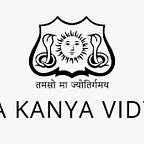The Importance of Digital Literacy in Education
Digital literacy is a vital skill set in today’s interconnected world. It covers the ability to grasp, use, and interact with technology, media, and digital resources in practical situations. It is a basic pillar for students’ readiness for higher education and professional endeavours. Given the rapid advancement of technology, digital literacy is essential for people to traverse the digital world properly. It entails accessing and operating digital tools and encompasses critical thinking, problem-solving, and information evaluation in online environments.
By honing their digital literacy skills, students gain the competence to discern reliable sources of information, engage in responsible digital citizenship, and harness the power of technology for communication, collaboration, and knowledge acquisition.
Understanding Digital Literacy in Education
Digital literacy enables people to adapt to rapidly evolving technical breakthroughs, giving them the necessary skills to succeed in a society increasingly reliant on technology. It also encourages innovation, creativity, and digital fluency, empowering people to engage confidently with developing technologies and discover fresh professional and personal development opportunities.
Enhancing Learning Experiences through Technology
Technology provides dynamic platforms that cater to diverse learning styles and interests, from multimedia presentations to virtual simulations. By leveraging technology effectively, educators can create transformative learning environments that empower students to participate in their education actively, leading to deeper understanding and improved academic outcomes.
Digital Literacy in the Classroom
Giving learners the knowledge and skills to utilise and understand digital tools, resources, and information is a key component of teaching digital literacy. By introducing digital literacy into the curriculum, teachers provide their pupils with the tools to utilise digital technology effectively and responsibly, setting them up for success in the twenty-first century.
The Role of Teachers in Fostering Digital Literacy in Education
Teachers are essential in helping children develop their digital literacy. Teachers may help students become capable and responsible digital citizens by modelling digital literacy, incorporating technology into lessons, teaching digital citizenship, and encouraging critical thinking and information literacy. Here are some strategies they can employ to enhance students’ digital competencies.
- Modelling Digital Literacy
- Integrating Technology-Enhanced Instruction
- Teaching Digital Citizenship
- Developing Critical Thinking Skills
- Promoting Information Literacy
- Differentiating Instruction and Personalized Learning
- Collaborative Learning and Digital Tools
- Professional Development and Continuous Learning
Advantages of Using Technology to Support Learning
Enhanced Engagement: Interactive and multimedia components offered by technology grab students’ attention and make studying more interesting. Pictures, movies, and simulations bring ideas to life and motivate students to learn by encouraging engagement.
Access to Abundant Resources: Technology enables abundant online resources, such as instructional websites, digital libraries, and educational apps. Students can research various topics, acquire current information, and better grasp many areas.
Personalized Learning: Technology enables personalised learning experiences tailored to individual requirements and preferences. Each student will receive individualised teaching thanks to adaptive learning platforms and educational software that may change the pace and material dependent on the ability of the pupils.
Collaboration and Communication: Technology enables cooperation and communication among students, teachers, and experts worldwide. Online platforms and tools facilitate group projects, virtual discussions, and global connections, promoting collaboration, teamwork, and cultural exchange.
Preparation for the Digital World: By utilizing technology in learning, students develop digital literacy skills essential for success in the modern world. They gain proficiency in using digital tools, navigating online resources, and leveraging technology for communication, collaboration, and problem-solving.
Digital literacy skills are taught explicitly, empowering students to navigate the digital landscape responsibly, critically evaluate online information, and communicate effectively in digital environments. The field of digital literacy is continuously evolving, and ongoing research contributes to a deeper understanding of its significance and implications in various contexts.
By leveraging digital literacy, schools equip students with essential skills for the modern world, fostering their academic success and preparing them for future challenges. SKV, a residential school, is utilizing digital literacy to enhance students’ education by integrating technology into various aspects of learning. We provide access to digital tools, devices, and online resources to facilitate research, collaboration, and creativity.
SKV admission open for 2023–24. Visit our website to get information on our academic curriculum, extracurricular opportunities, global exposure, teaching professionals, and residential facilities. We offer experiential education to girls from class VI onwards and aim to offer a secure and holistic environment for the all-round development of your ward.
